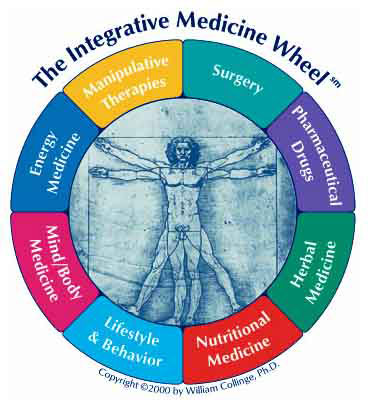
Unlocking the Power of Integrative Health Care: A Holistic Approach to Well-Being
In the pursuit of optimal health, individuals are increasingly turning to integrative health care, recognizing the importance of addressing the whole person—mind, body, and spirit. This holistic approach combines conventional medicine with complementary therapies to create a comprehensive and personalized healing experience.
Understanding Integrative Health Care: A Holistic Perspective
Integrative health care emphasizes the integration of conventional medical practices with complementary and alternative therapies. It recognizes that health is more than just the absence of disease and seeks to address the root causes of health issues rather than merely treating symptoms. This approach considers the individual as a unique entity, taking into account lifestyle, environment, and personal preferences.
The Core Principles of Integrative Health Care
Integrative health care is guided by several core principles. These include a partnership between the patient and practitioner, a focus on prevention, consideration of all aspects of lifestyle, and the use of both conventional and alternative therapies when appropriate. The goal is to create a collaborative and patient-centered approach that goes beyond traditional medical models.
Complementary Therapies in Integrative Health Care
A key aspect of integrative health care is the incorporation of complementary therapies alongside conventional treatments. These may include acupuncture, chiropractic care, herbal medicine, massage therapy, and mind-body practices such as yoga and meditation. By combining these therapies, patients often experience a more holistic and well-rounded approach to healing.
Personalized Treatment Plans: Tailoring Care to the Individual
One of the strengths of integrative health care lies in its emphasis on personalized treatment plans. Practitioners work closely with patients to understand their unique needs, preferences, and goals. This collaborative approach allows for the development of customized plans that address the specific health concerns of each individual.
The Mind-Body Connection: Nurturing Mental and Emotional Well-Being
Integrative health care recognizes the intricate connection between the mind and body. Emotional and mental well-being are integral components of overall health. Therapies such as mindfulness meditation, counseling, and stress reduction techniques are often incorporated to support mental health and foster a positive mindset.
Prevention as the Best Medicine: A Proactive Approach
Rather than waiting for illness to manifest, integrative health care places a strong emphasis on preventive measures. Patients are encouraged to adopt healthy lifestyle habits, including a balanced diet, regular exercise, and stress management. By addressing potential health issues proactively, individuals can reduce the risk of developing chronic conditions.
The Role of Nutrition in Integrative Health Care
Nutrition plays a central role in integrative health care, recognizing that the food we consume directly impacts our health. Practitioners may work with patients to develop individualized nutrition plans, incorporating whole foods, supplements, and dietary changes to support overall well-being. This nutritional guidance is often tailored to address specific health concerns or conditions.
Integrative Health Care in Action: Real-Life Success Stories
Numerous individuals have experienced transformative results through integrative health care. These success stories highlight the effectiveness of combining conventional medicine with complementary therapies to address a wide range of health issues. From managing chronic pain to improving mental health, integrative approaches offer hope and healing.
Accessing Integrative Health Care Resources
For those interested in exploring integrative health care further, a valuable resource is available at health-sourcing.com. This platform offers insights, articles, and expert guidance on integrative health practices. Whether you are just beginning your journey or seeking additional information, this resource can serve as a comprehensive guide to integrative well-being.
In conclusion, integrative health care provides a holistic and patient-centered approach to well-being. By recognizing the interconnectedness of various aspects of health and incorporating complementary therapies, individuals can embark on a journey toward optimal health and vitality. Explore the possibilities of integrative health care and empower yourself to take charge of your well-being.


:max_bytes(150000):strip_icc()/Dental-Care-Diabetes-Heart-Disease-GettyImages-904657730-2000-d106253af9b54ceba2bad7031cdfc657.jpg)
